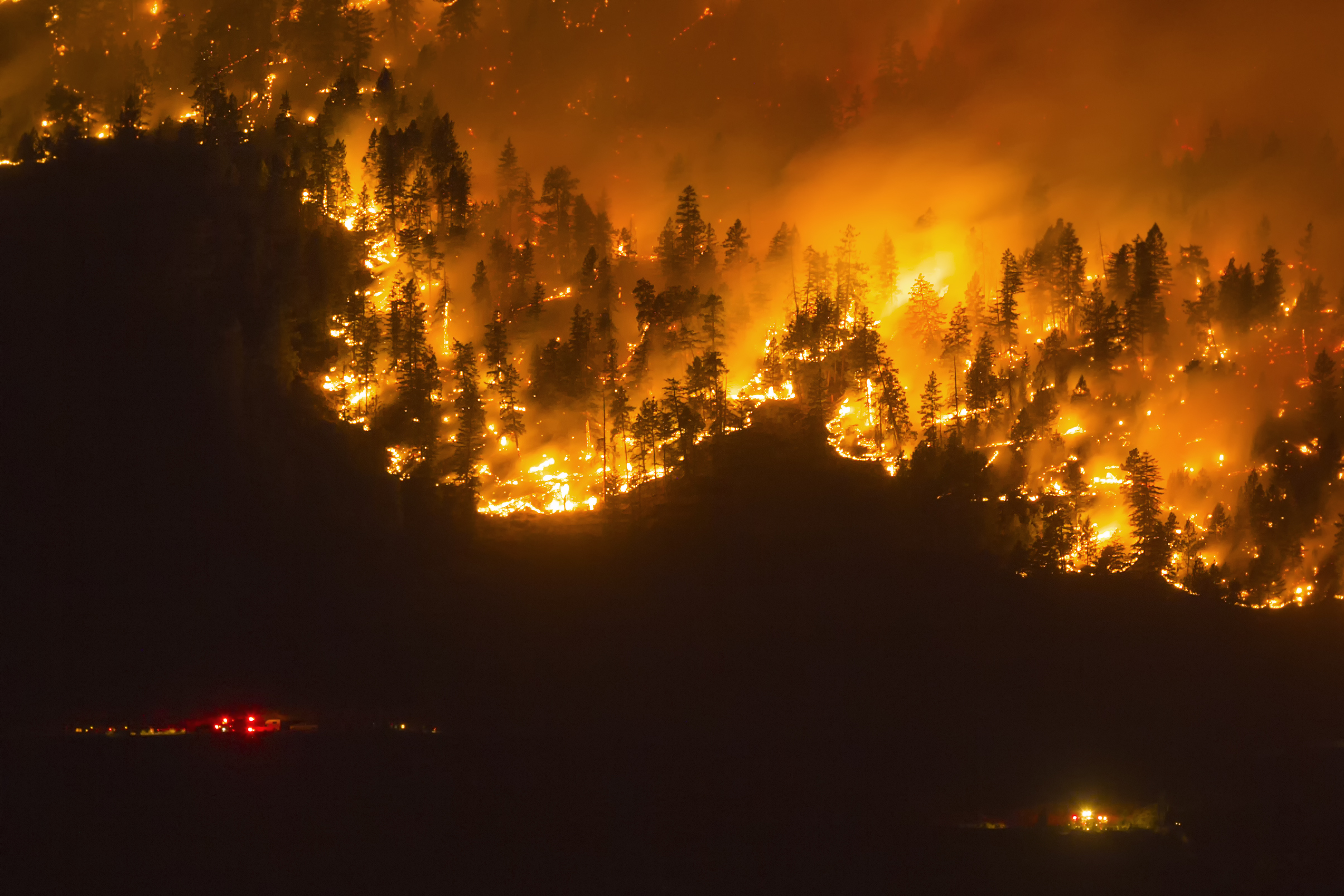A warming planet and changes to land use patterns mean more wildfires will scorch large parts of the globe in coming decades, causing spikes in unhealthy smoke pollution and other problems that governments are ill prepared to confront, according to a UN report released Wednesday.
The Western U.S., northern Siberia, central India, and eastern Australia already are seeing more blazes, and the likelihood of catastrophic wildfires globally could increase by a third by 2050 and more than 50 per cent by the turn of the century, according to the report from the United Nations Environment Program.
Areas once considered safe from major fires won’t be immune, including the Arctic, which the report said was “very likely to experience a significant increase in burning.”
Tropical forests in Indonesia and the southern Amazon of South America also are likely to see increased wildfires, the report concluded.
“Uncontrollable and devastating wildfires are becoming an expected part of the seasonal calendars in many parts of the world,” said Andrew Sullivan, with the Commonwealth Scientific and Industrial Research Organization in Australia, one of the report’s authors.
Short-term exposure to Fort McMurray wildfire smoke affected lungs of RCMP officers: study – Jan 29, 2022
The report describes a worsening cycle: Climate change brings more drought and higher temperatures that make it easy for fires to start and spread, and in turn those blazes release more climate-changing carbon into the atmosphere as they burn through forests and peatland.
Trending Stories
Canada announces new sanctions on Russia amid Ukraine tensions
South Asian Canadian truckers turned off by ‘freedom convoy’ mull other career paths
Some areas including parts of Africa are seeing decreasing wildfires, in part because more land is being devoted to agriculture, said report co-author Glynis Humphrey from the University of Cape Town.
But UN researchers said many nations continue to spend too much time and money fighting fires and not enough trying to prevent them. Land use changes can make the fires worse, such as logging that leaves behind debris that can easily burn and forests that are intentionally ignited to clear land for farming, the report said.
August 15, 2021 the White Rock Lake wildfire turned the sky in Vernon, B.C. dark.
Megan Turcato / Global News
Poor communities are often hit hardest by fires, which can degrade water quality, destroy crops and reduce land available to grow food.
“It impacts people’s jobs and the economic situation that people are in,” Humphrey said. “It’s integral that fire be in the same category of disaster management as floods and droughts. It’s absolutely essential.”
In the United States, officials recently unveiled a $50 billion effort to reduce fire risks over the next decade by more aggressively thinning forests around “hot spots” where nature and neighborhoods collide. However, the administration of President Joe Biden has so far identified only a fraction of the funding called for in the plan.
The UN researchers also called for more awareness of the dangers from wildfire smoke inhalation, which can affect tens of millions of people annually as plumes from major wildfires drift thousands of miles across international borders.
© 2022 The Canadian Press



